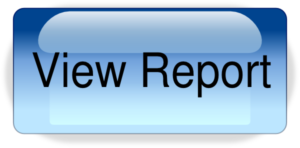Can HSA Bring Down Healthcare Costs?
More and more people now have the opportunity to choose Health Savings Accounts (HSAs) over other, more traditional, health insurance coverage – more companies and financial institutions offer this option than ever before. For the healthcare consumer, this is good news. When the community as a whole is given more choice when it comes to healthcare options, everyone benefits. HSAs let you decide how to manage your own medical needs and work out a financial plan that works best for your specific circumstances.
An added advantage of Health Savings Accounts is the prospect of lowering the nation’s rising healthcare costs, and making the price of medical care more affordable for everyone. But how can revamping the current health insurance system affect healthcare from a financial standpoint? More to the point, how can a different kind of health insurance make it easier for most people to pay for required medical expenses?
In 2003 the Medicare Modernization Act introduced the concept of HSAs to the American public for the first time. A Health Savings Account is meant to encourage people to invest in their own healthcare through personal savings, and reduce health care costs at the same time; a revolutionary idea that has the potential to be the starting point for positive changes in healthcare. Health Savings Accounts have sparked a lot of debate amongst those who believe in the idea and those who are wary of its ability to change the face of healthcare as we know it.
When you get down to the fundamentals, HSAs are truly designed to improve healthcare and make it accessible to the vast majority of people. For the individual, HSAs make it easier to pay for medical expenses when they arise. Coupled with a high-deductible health insurance policy, a Health Savings Account allows you to save pre-tax money and earn interest tax-free. This allows you to have money set aside to cover a whole host of medical bills, including items that aren’t necessarily covered by traditional insurance plans, such as dental expenses or alternative treatments. Individuals and employers can deposit up to $2700 per person and up to $5450 for a family, and any time you need to withdraw any amount to pay for qualified healthcare costs, you can do so tax-free. In addition, premiums for high-deductible insurance policies can be as little as half the amount of traditional PPO policies.
And because a Health Savings Account is tied to an insurance policy, more expensive treatments are covered, usually 100%, after you’ve met your deductible. When you turn 65, any savings remaining in the account can be withdrawn tax-free to be used for medical expenses you incur in your senior years. In addition, the savings you accumulate in a HSA work like a retirement fund. The money grows tax-deferred like an IRA, and you can withdraw the money after age 65 to pay for non-medical expenses without penalty, although you will be required to pay taxes. It is important to note, however, that amounts withdrawn prior to age 65 are subject to penalties and taxes.
Giving the individual more consumer power when making healthcare decisions not only helps you and your family save money, but also creates an environment in which healthcare costs in general become more reasonably priced. Essentially, the price of healthcare is so high because free market forces have little sway in the realm of healthcare products and services. Insurance coverage causes a disconnection between the consumer and the item purchased. When you visit the doctor or purchase a prescription from the pharmacist, you don’t know the real price tag. All you see is your insurance payment and the price you pay at the cash register, after your insurance company pays the balance.
This lack of price transparency has led to less competition within the marketplace. People have traditionally chosen their doctors, health products, and other medical items based on location, convenience, or other factors not related to price. When people have the choice to compare different health care providers based on quality of service and price, soon overpriced healthcare will become a thing of the past. People will shop around and force providers to price healthcare more competitively.
As more and more people turn to Health Savings Accounts, medical providers will feel the pressure to post their prices and compete for the consumer’s business. Armed with the knowledge of what healthcare actually costs, individuals and families will be less willing to overuse the system, which also drives up prices. (When healthcare appears to cost little or nothing, most people are prone to make use of services even though it may be unnecessary).
At the same time, HSAs naturally promote the use of preventive care. When people understand the true costs associated with healthcare, they will be willing to pay a little more up front to keep their engine running smoothly rather than pay a lot more at a later date to fix a problem they could have avoided.
Health Savings Accounts have also put affordable healthcare within reach for more people, who were previously paying medical expenses out-of-pocket due to inadequate or non-existent insurance coverage. The low premiums of a high-deductible HSA plan together with the option of putting your money in a savings account that earns interest has already encouraged large numbers of people who previously went without coverage to purchase a health insurance plan.
Only time will tell whether or not Health Savings Accounts can drive down skyrocketing healthcare costs, but the system created by such accounts, which affords the individual more freedom to control his or her own financial and medical destiny, bodes well for the future of healthcare in America.
These are just a few facts about healthcare savings accounts that you might not have known. Hopefully you found these helpful. If you would like to learn even more about how you can increase the bottom line of your own business, then you are more than welcome to contact us and we will take a look at your unique situation and offer some sensible solutions that would work best for you!
“TITAN Financial Pros provide an informational service only and are not responsible for any investments made applying this information. The results described are not distinctive and are not guarantees of future income. Any assumption contains risk and is 100% the responsibility of the individual to assess the risks/rewards involved. We bear no liability assumed or implied for your application of the information shared from this content. This information is for educational and entertainment purposes only.”
Is your business losing money?
Click the button below to get our FREE report on the 5 Most Common Ways Businesses Lose Money and more importantly,
HOW YOU CAN FIX THEM!



